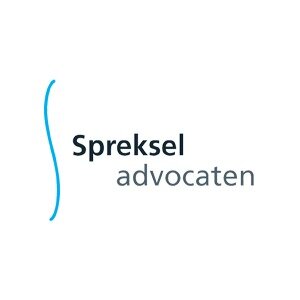Best Funds & Asset Management Lawyers in Netherlands
Share your needs with us, get contacted by law firms.
Free. Takes 2 min.
Or refine your search by selecting a city:
List of the best lawyers in Netherlands
About Funds & Asset Management Law in Netherlands
The Netherlands is recognized as a strong jurisdiction for funds and asset management, appealing to domestic and international investors. The Dutch legal framework provides a robust and flexible environment for various investment funds, asset managers, and investors, shaped by both national law and European Union (EU) regulation. The Dutch Authority for the Financial Markets (AFM) and the Dutch Central Bank (DNB) oversee regulatory compliance, licensing, and supervision. The country is known for its innovative fund structures, such as the Dutch investment fund (FGR) and its alignment with international standards, making it a favored hub for asset management activities.
Why You May Need a Lawyer
Legal advice in the field of funds and asset management can be essential for several reasons. Establishing, managing, or investing in funds involves complex regulatory requirements, structuring decisions, and compliance risks. Common situations where legal help may be needed include choosing the right fund structure, navigating licensing and registration, drafting fund documentation, responding to regulatory investigations, ensuring compliance with anti-money laundering and tax laws, or dealing with disputes among investors or managers. Additionally, cross-border considerations and EU directives often add further complexity, making experienced legal guidance crucial for both fund managers and investors.
Local Laws Overview
The regulatory landscape for funds and asset management in the Netherlands is governed by both national and EU laws. The main pieces of legislation include the Financial Supervision Act (Wet op het financieel toezicht, Wft), the Dutch Civil Code, and various EU directives such as AIFMD (Alternative Investment Fund Managers Directive) and UCITS (Undertakings for Collective Investment in Transferable Securities). Key aspects include:
- Licensing requirements for fund managers and investment firms, with certain exemptions for small managers.
- Rules on fund structures, notably the FGR, Dutch NV (public limited company), and CV (limited partnership).
- Mandatory compliance with disclosure and reporting obligations, investor protection, risk management, and transparency standards.
- Robust anti-money laundering (AML) and counter terrorist financing (CTF) regulations influenced by both Dutch and EU law.
- Tax considerations, such as the Dutch investment institution regime (FBI), which may offer tax-efficient structures for certain funds.
Frequently Asked Questions
Which authorities regulate funds and asset managers in the Netherlands?
The Dutch Authority for the Financial Markets (AFM) and the Dutch Central Bank (DNB) are the key regulators. The AFM supervises conduct and transparency, while the DNB oversees prudential aspects.
What types of investment funds can be set up in the Netherlands?
The most common types are the mutual fund (FGR), limited partnership (CV), and public or private limited companies (NV or BV). Each offers different legal and tax profiles.
Is a license needed to manage a fund in the Netherlands?
Generally, yes. A license from the AFM is required under the Wft, unless you qualify for an exemption-such as for small managers with assets below certain thresholds.
What are the ongoing compliance obligations for fund managers?
Managers must regularly report to the AFM and DNB, adhere to AML and CTF rules, maintain risk management processes, and disclose relevant information to investors.
Can foreign funds or managers operate in the Netherlands?
Yes. European Economic Area (EEA) managers may be able to passport their services under EU rules like AIFMD or UCITS, while non-EEA managers face additional requirements.
How does Dutch law protect fund investors?
Dutch and EU law impose rigorous standards on disclosure, reporting, and transparency. Investor protection is central, especially for retail clients.
Are there special tax regimes for investment funds in the Netherlands?
Yes. Certain funds may benefit from the fiscal investment institution (FBI) regime or be structured as exempt investment institutions (VBI), both offering tax advantages under strict conditions.
What is the typical timeline for establishing a new fund?
The timeline varies depending on the complexity and regulatory requirements. Licensing can take from a few months to longer if the structure or strategy is complex.
What happens in case of a dispute between fund investors and managers?
Disputes can be settled through negotiation, mediation, arbitration, or litigation. The AFM also has the authority to intervene in certain cases to protect investors.
What are the main trends in Dutch funds and asset management?
Key trends include increased focus on sustainability (ESG), digitalization, regulatory scrutiny, and growth in alternative investments. Compliance with EU ESG and sustainability rules is becoming increasingly important.
Additional Resources
- Dutch Authority for the Financial Markets (AFM) - Supervises funds and asset management in the Netherlands
- Dutch Central Bank (DNB) - Prudential supervisor for financial institutions
- Netherlands Bar Association (Nederlandse Orde van Advocaten) - Source for finding qualified lawyers
- Dutch Investment Institution Association (NVB) - Provides industry insights and guidance
- European Securities and Markets Authority (ESMA) - EU-wide regulator for securities markets
Next Steps
If you require legal assistance in funds and asset management in the Netherlands, start by clearly identifying your objectives and challenges. Gather any documents related to your inquiry and consider the type of legal expertise you need. You can contact a Dutch lawyer or legal firm specializing in financial law and funds. Prepare questions about experience in the sector, regulatory knowledge, and previous cases. Professional organizations and regulatory authorities, such as the AFM and the Bar Association, can help you find qualified legal experts. Addressing your needs early with the support of a specialist can ensure smooth navigation of regulatory requirements and minimize risks to your assets and investments.
Lawzana helps you find the best lawyers and law firms in Netherlands through a curated and pre-screened list of qualified legal professionals. Our platform offers rankings and detailed profiles of attorneys and law firms, allowing you to compare based on practice areas, including Funds & Asset Management, experience, and client feedback.
Each profile includes a description of the firm's areas of practice, client reviews, team members and partners, year of establishment, spoken languages, office locations, contact information, social media presence, and any published articles or resources. Most firms on our platform speak English and are experienced in both local and international legal matters.
Get a quote from top-rated law firms in Netherlands — quickly, securely, and without unnecessary hassle.
Disclaimer:
The information provided on this page is for general informational purposes only and does not constitute legal advice. While we strive to ensure the accuracy and relevance of the content, legal information may change over time, and interpretations of the law can vary. You should always consult with a qualified legal professional for advice specific to your situation.
We disclaim all liability for actions taken or not taken based on the content of this page. If you believe any information is incorrect or outdated, please contact us, and we will review and update it where appropriate.
Browse funds & asset management law firms by city in Netherlands
Refine your search by selecting a city.
















